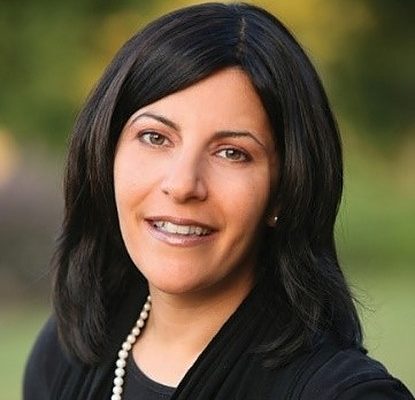“It’s become absolutely shrill,” said author Gila Green. “There isn’t even a discussion or rationality…the word Israel becomes a ‘trigger’ word.”
By Lauren Marcus, World Israel News
A prominent writers’ organization apologized for releasing a statement in June that condemned rising anti-Semitism, raising concerns among Jewish authors about the literary world’s stance towards Jews and Israel.
After Twitter users slammed the Society of Children’s Book Writers and Illustrators for acknowledging a spike in attacks on Jews without also condemning Islamophobia, the organization’s director apologized for “the pain our actions have caused to our Palestinian and Muslim members.”
Some Jewish SCBWI members were left reeling by the apology, which appeared to suggest that condemning anti-Semitism harms Muslims, or that anti-Semitism isn’t an issue deserving of a standalone statement.
Gila Green, a Canadian-born, Israel-based author and former member of SCBWI, told World Israel News that the saga is just the latest development in an industry that’s grown increasingly hostile towards Jews and stories about Israel.
“It’s a masking of anti-Semitism,” Green told WIN, that is often cloaked in the language of social justice ideology.
Stories that focus on the messy, human aspects of life in Israel and suggest that the Israeli-Palestinian conflict is a “gray area” can spark pushback from publishers, she said.
“It’s become absolutely shrill,” said Green. “There isn’t even a discussion or rationality…the word Israel becomes a ‘trigger’ word.”
Erasing Jewish protagonists
Green, who was born to an Ashkenazi Canadian mother and a Yemeni-Israeli father, wrote Passport Control, a novel focused on a Jewish heroine of Yemenite extraction.
The book contains a diverse range of characters, including Druze Israelis, Arab Israelis, and Jewish Moroccan-Israelis.
The manuscript was originally accepted by a subsidiary of a major publishing house. After the subsidiary folded, it was passed along to the parent publisher and subjected to intense scrutiny, despite previously being approved with an upcoming release date.
After Palestinian and American “sensitivity readers” combed through her manuscript and found much of it “offensive,” Green recalled, she was pressured to revamp large swaths of the book.
Fearing that resisting could hurt her career, Green initially complied with their requests. But she stood her ground when asked to destroy her character’s Jewish identity.
She was told that there were “enough Jewish heroines,” so she should rewrite her protagonist as an Arabic-speaking Syrian Christian.
Green pointed out that there is a dearth of books featuring protagonists of Mizrahi heritage, and it was important to her to expand the canon of Jewish literature with a book focused on a Yemeni-Jewish character.
Rather than erase her protagonist’s identity, she asked for the manuscript to be moved to a different imprint of the publishing house. In response, the publisher dropped the novel.
It was later published by a Virginia-based boutique press.
’It’s getting worse, and quickly’
Manuscripts set in Israel are held to a double standard, Green said, in which the inclusion of Palestinian characters and the Palestinian narrative becomes paramount.
Publishers feel free to question the motives of Jewish writers who are primarily focused on the experiences of Israeli Jews, she said.
In contrast, she believes there is no expectation that every book set in Canada include First Nations characters. Authors would not be criticized for failing to delve into the historical oppression of that group.
Another novel by Green, No Entry, takes place in South Africa, and she wryly noted that nobody questioned her choosing the former apartheid state for the book’s setting.
“There was not even a hint of interference,” she said.
The sheer speed at which the literary world has shifted its outlook on Jews and Israel is especially disturbing to Green, considering that in 2013, her agent said he viewed her Jewishness as an asset.
“He told me it was a plus,” she said, because a novel written by a Jewish woman about Jewish characters was a natural fit for niche market events, such as Jewish book festivals.
Now, Green said, agents are telling authors that their Jewishness may be a hindrance.
She referred to statements from children’s fantasy author Jonathan Rosen, who recently told Jewish Insider that he’d received explicit advice to downplay his identity.
“Jewish books don’t sell,” Rosen recounted an industry executive as saying. “I was even told by one agent…to make something less Jewish.”
“Look how quickly this is going – [this change] happened in less than a decade,” Green said.
“It’s upsetting. This is going from ‘it’s maybe an advantage [to be a Jewish author]’ to ‘it’s okay to be Jewish, as long as you don’t write about Israel.’ Now it’s becoming [a problem] to be Jewish at all.”
No room for art
Green added that she is alarmed by a culture in which authors must tiptoe around ever-shifting social justice and critical race theory-inspired norms when they write, lest they spark social media outrage that would reflect badly on publishing houses.
“They are redefining what a novel is, in a very disturbing way,” she said. “Novels can’t be written by committee.”
The pressure to toe the party line stifles creativity and defeats the purpose of literature, she said.
If authors “write the right characters, who say the right things” according to the dominant orthodoxy, what’s being produced “is no longer art,” Green said. “It’s propaganda.”





